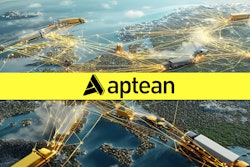
Today’s most successful digital transformations begin with identifying actionable insights. Yet, many organizations lack a holistic view of their current pain points and inefficiencies. As data growth continually accelerates, it’s critical for companies to adopt and rely on scalable data analytics for a comprehensive snapshot of the business to inform strategic business decisions.
DynCorp International is one organization that has benefited from applying data and analytics to its supply chain. As a global service provider for the military, government and commercial markets operating across 35 countries, the company needed to centralize its supply chain management processes but lacked visibility in identifying the most effective and successful approach.
Transparency that Unites
The turning point for DynCorp was the installation of an 80-inch touchscreen TV displaying a visual dashboard. Fueled by Qlik data analytics software, the dashboard united the entire supply chain by uncovering new insights previously unavailable. This new level of understanding has empowered individuals across all areas of the business to more effectively analyze and incorporate new data for performance improvement.
Disparate data sets once created more unanswered questions for the DynCorp team. The Qlik visual dashboard fills the gaps, eliminates irrelevant data and reveals hidden relationships that have enabled the company to better manage the supply chain from production to inventory and distribution. The team now has the insights to confidently streamline workflows and shift employee and asset allocation to ensure operations optimization. The team can even measure their ROI by analyzing their investments across several dimensions including supplier, business unit and commodity type.
Establishing a Data Literate Workforce
For the questions that can’t immediately be answered, the Qlik software helps create new associations to guide DynCorp’s strategic decision-making process and assists in making the supply chain more agile with time. While benefiting from improved data visibility, the company’s transformation progress would be limited if its employees couldn’t easily see and appropriately act upon the data. This is where the DynCorp executive team’s decision to prominently display the Qlik dashboard on touchscreen TVs has paid dividends. This approach enables new and existing employees with the ability to collaborate and share in learnings and strengthen their fundamental approach to being data driven.
Leveraging a Holistic Supply Chain View
Digital transformations are an ongoing process, and it takes time to uncover the most effective strategy for a specific supply chain. Since gaining an integrated, holistic view of its operations, DynCorp has watched its supply chain significantly grow over the past two years. By putting an end to disparate channels of data and relying on a “single source of truth,” it has entirely elevated the value and role of its supply chain throughout the company. Moving forward, the global perspective will continue to guide DynCorp’s efforts and further amplify its value-add to employees and customers alike.
The question, “What does an effective digital transformation look like for my specific supply chain?” serves as both a starting point and an approach for measuring progress. All supply chains, no matter where on the digital transformation arc, can experience a heightened level of transparency today by implementing data analytics at the heart of their operations.













![Pros To Know 2026 [color]](https://img.sdcexec.com/mindful/acbm/workspaces/default/uploads/2025/08/prostoknow-2026-color.mduFvhpgMk.png?ar=16%3A9&auto=format%2Ccompress&bg=fff&fill-color=fff&fit=fill&h=135&q=70&w=240)





